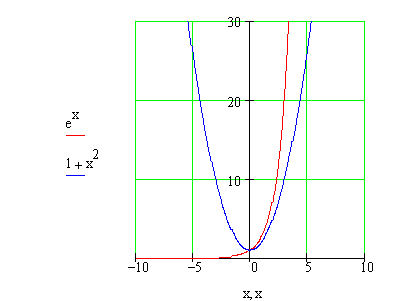
Resources
Math 3 Course Home Page
Math 3 Course Syllabus
Practice Exams
Textbook Home Page
Post a Comment
Contents
In this lecture we consider an extended application of the ideas of the first four lectures, namely, modeling AIDS data.
Quick Question
How many solutions does the equation ex − x2 − 1 = 0 have?
Outline
Outline for Case Study: Modeling with Elementary FunctionsTextbook
Sec. 1.7, Case Study: Modeling with Elementary FunctionsToday's Homework
Log into WebWorKQuiz
Case Study: Modeling with Elementary Functions QuizExamples
-
 A succession of forest fires has been decimating the countryside. A table of data is available, giving the days elapsed and acres destroyed. Two functions have been suggested to model the data. Which one is a better fit?
A succession of forest fires has been decimating the countryside. A table of data is available, giving the days elapsed and acres destroyed. Two functions have been suggested to model the data. Which one is a better fit?
-
 After examining the data in the table, it is suggested that since the amount of damage is increasing so quickly, perhaps an exponential function would be a better fit. Is this true? Find the best-fit exponential function and determine if it does in fact model the data more precisely.
Use the two polynomials suggested in example 1 to predict the number of acres
After examining the data in the table, it is suggested that since the amount of damage is increasing so quickly, perhaps an exponential function would be a better fit. Is this true? Find the best-fit exponential function and determine if it does in fact model the data more precisely.
Use the two polynomials suggested in example 1 to predict the number of acres
-
 Use the two polynomials suggested in example 1 to predict the number of acres destroyed after 30, 40, and 50 days. It turns out that after 30 days, the number of acres destroyed was 25100. What was the percentage error in each of your estimates? How does this reflect on your choice of modeling function?
Use the two polynomials suggested in example 1 to predict the number of acres destroyed after 30, 40, and 50 days. It turns out that after 30 days, the number of acres destroyed was 25100. What was the percentage error in each of your estimates? How does this reflect on your choice of modeling function?


